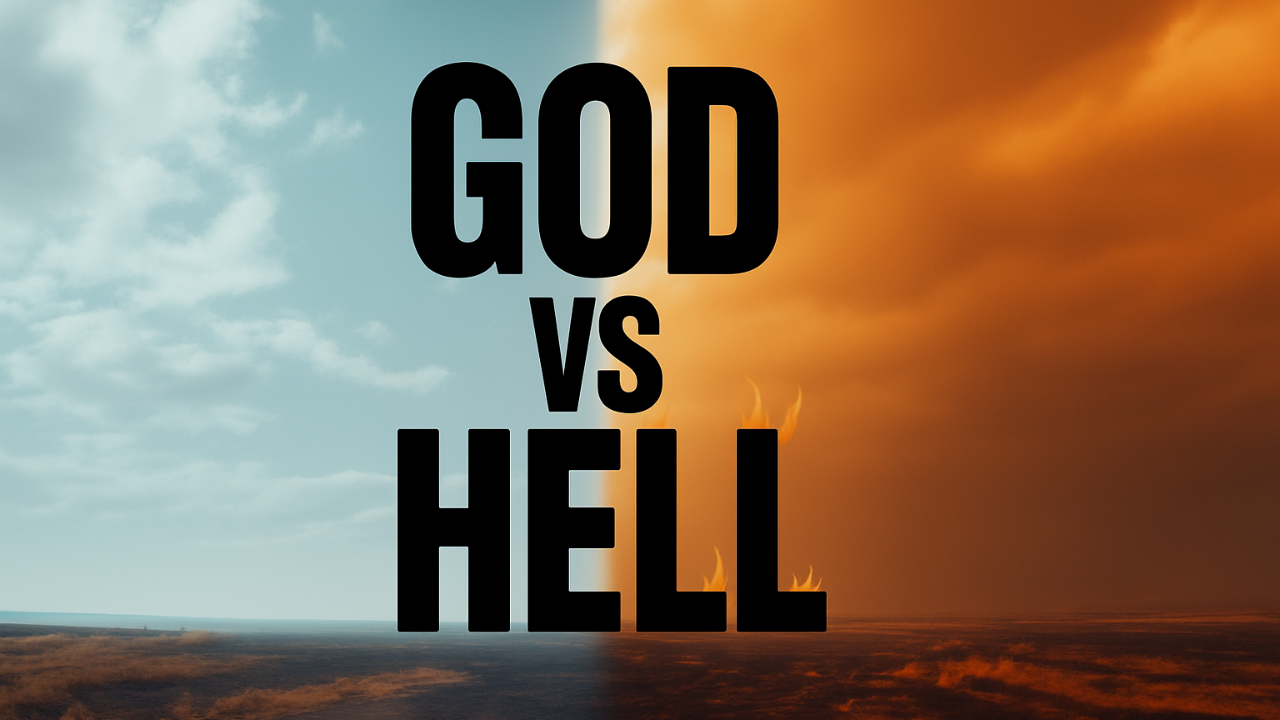“If God is love, why hell?” That question has haunted Christianity for centuries. In 2025, it’s louder than ever. Younger believers are walking away, theologians are rethinking ancient doctrines, and contradictions in Scripture are getting pulled apart on social media. From Augustine to TikTok, the debate over hell isn’t just about theology — it’s about the very credibility of Christianity in the modern world.
1. The Central Contradiction
Let’s be honest: Christianity claims God is all-loving and all-powerful. Yet many churches preach billions will spend eternity in hellfire. Forever.
That contradiction is hard to square. Imagine a parent promising unconditional love — then threatening eternal fire if unloved. Most would call that abuse, not love. For many Christians, hell makes God sound less like a loving parent and more like a tyrant.
2. A Brief History of Hell
Christian doctrines of hell evolved over centuries:
- Early Christianity blended Jewish Sheol and Greek Hades concepts; usage in the New Testament varies between metaphor and literal eternal punishment.
- Augustine (5th century) cemented eternal conscious torment as orthodox belief, influencing Catholic doctrine for centuries.
- Medieval thought popularized fiery, torturous imagery, including Dante’s Inferno.
- The Reformation emphasized God’s sovereignty and separation from Him rather than physical torment.
- Today, views range from literal eternal torment to annihilationism or universalism, signaling a fluid and contested doctrine.
3. Denominational Diversity Today
- Catholicism: Teaches eternal separation but emphasizes God’s mercy and purgatory.
- Eastern Orthodoxy: Hell as experiencing God’s grace as torment for the unprepared.
- Evangelical Protestantism: Traditionally eternal torment; younger evangelicals often lean annihilationist.
- Liberal Protestants: Many see hell metaphorically or reject it outright.
- Universalists: Believe all souls ultimately reconciled through God’s love.
4. The Bible’s Own Contradictions Don’t Help
“Thou Shall Not Kill” Vs. Divine Kill Commands: The Old Testament commands massacres of entire populations, conflicting with early commandments.
Noah’s Ark: Logistical questions about animal care — like, what stopped the lions from eating the zebras? — and why a loving God would drown nearly all life remain theological challenges.
Eve as Scapegoat: Original sin blamed on Eve, but historical violence led by men creates theological tension.
5. What the Data Shows: Belief in Hell Is Fading
- Pew Research (2021): Only 59% of Americans believe in hell, down from 71% in the early 2000s.
- Among Gen Z and millennials, it falls to 43%.
- Barna Group: Doubt about hell is strongly correlated with people leaving evangelical churches.
6. Theological and Philosophical Arguments
Defenses: Hell necessary for divine justice and free will; just fate for grave evils. C.S. Lewis defended hell as self-chosen, writing that 'the gates of hell are locked from the inside.'
Critiques: Eternal punishment disproportional; incompatible with divine love. Universalists promote restoration and reconciliation.
7. The Psychological and Pastoral Impact
Hell doctrine causes religious trauma syndrome (RTS) — PTSD-like symptoms in up to a third of Americans — through fear of eternal punishment.
Symptoms include anxiety, depression, nightmares, and social fears. Pastors face tough questions about salvation for non-believers or marginalized groups, with many younger people leaving fear-based churches. TikTok and YouTube are now filled with 'deconstruction' stories from people sharing how they walked away from fire-and-brimstone faiths.
8. Voices from the Debate
John Piper: “The horror of hell magnifies the glory of the cross.”
David Bentley Hart: Eternal hell is “a blasphemy against divine love.”
Francis Chan: Suggests eternal torment may be misinterpreted, leans toward annihilationism.
Rachel Held Evans: “Fear is not the foundation of true faith.”
9. Interfaith Perspectives
- Judaism: Sheol is shadowy and often temporary.
- Islam: Jahannam varies — some eternal, some temporary interpretations.
- Hinduism/Buddhism: Emphasize karma and reincarnation, not eternal torment.
Christianity’s eternal torment doctrine is among the harshest in world religions, complicating interfaith dialogue.
10. Conclusion: Faith in Transition
Hell once filled pews; today it’s emptying them. The traditional answers often don’t satisfy, especially when paired with scriptural contradictions.
Hell may be real, metaphorical, or invented to control behavior — but the debate is reshaping Christianity’s core. If God is truly love, churches must reconcile hell’s harshness or risk losing a generation seeking spiritual authenticity.







